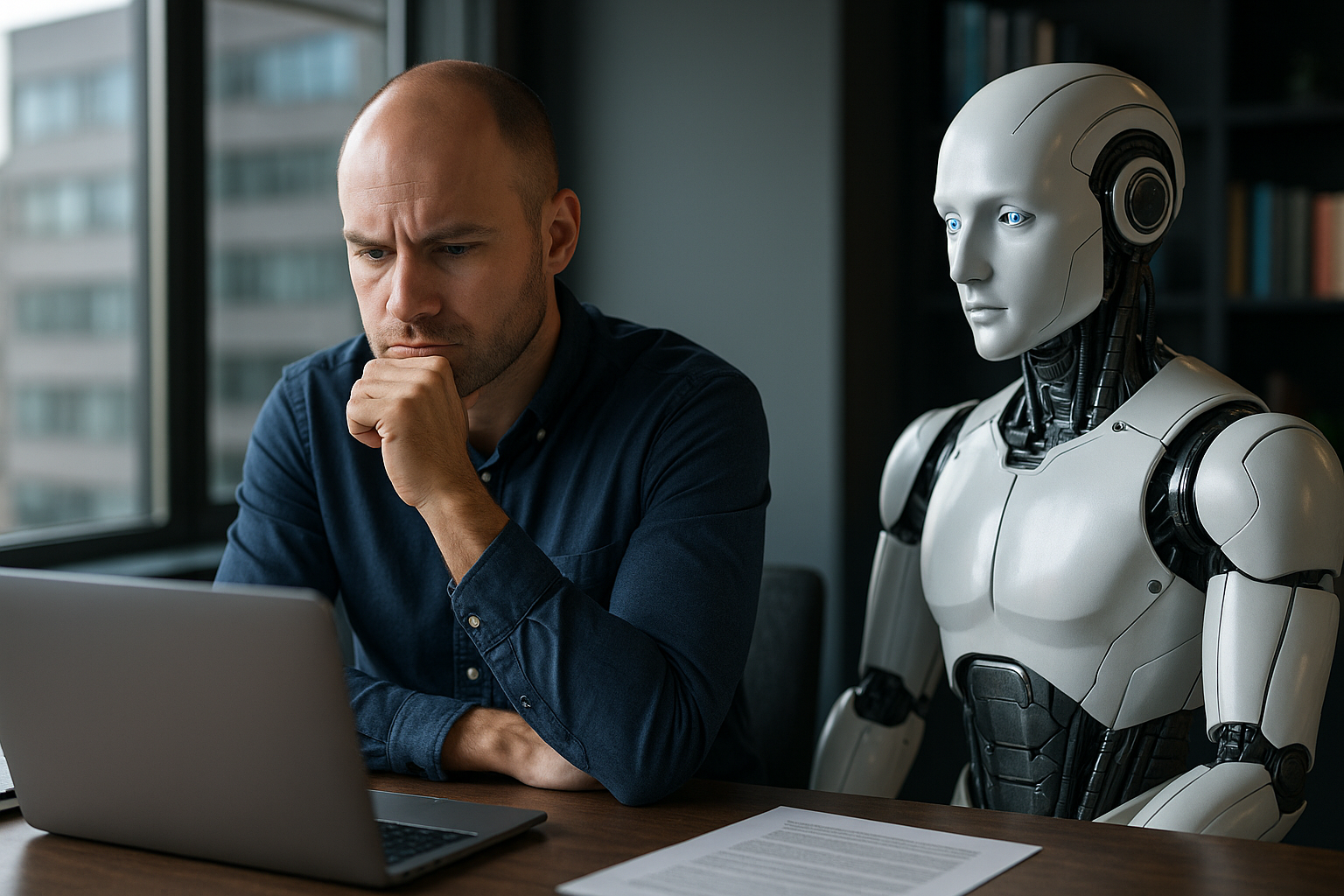Artificial Intelligence (AI) is no longer a distant concept from science fiction — it’s already transforming how businesses operate and how people work. This shift has sparked an intense global debate: Will AI replace human jobs? The answer isn’t a simple yes or no. The reality is nuanced and depends on multiple factors, including the industry, the task, and how we choose to adapt.
In this article, we’ll examine both sides of the discussion to offer a clear, balanced perspective on AI’s role in the future of work.
Understanding AI’s Role in the Workplace
AI refers to machines or systems designed to perform tasks that typically require human intelligence, such as:
- Decision-making
- Problem-solving
- Language understanding
- Pattern recognition
- Learning from data
Today, AI is being used to:
- Automate customer service chats
- Analyze massive datasets in finance
- Generate marketing content
- Power autonomous vehicles
- Perform diagnostics in healthcare
But does this mean human workers are becoming obsolete? Not exactly.
Jobs Most Likely to Be Automated
AI is especially good at handling routine, repetitive, and rule-based tasks. Jobs most at risk of full or partial automation include:
- Data entry clerks
- Telemarketers
- Cashiers
- Assembly line workers
- Basic customer support agents
- Proofreaders
In these roles, AI can often complete the same task faster, cheaper, and without fatigue.
Jobs That Will Evolve — Not Disappear
Rather than eliminating roles, AI will transform them. Workers in these jobs will likely shift toward more analytical, creative, or strategic functions:
- Teachers will use AI to personalize lesson plans.
- Marketers will use AI to analyze trends and generate campaign ideas.
- Journalists will use AI to summarize data and improve workflow.
- Doctors will rely on AI for diagnostics, but still handle patient relationships.
In essence, AI will take over tasks, not entire jobs — creating opportunities for hybrid roles that combine human insight with machine efficiency.
New Jobs Created by AI
Every major technological shift has created new types of work — and AI is no different. Emerging roles include:
- AI ethicists
- Machine learning engineers
- Prompt engineers
- AI trainers
- Data annotators
- Automation consultants
These jobs didn’t exist a decade ago, and many more are on the horizon as AI continues to evolve.
Skills That Will Matter in an AI World
To stay relevant in an AI-driven workforce, workers will need to develop skills that complement machines rather than compete with them.
Key skills include:
- Critical thinking
- Emotional intelligence
- Creativity and innovation
- Digital literacy
- Adaptability
- Cross-functional collaboration
Human traits like empathy, judgment, and ethics remain areas where AI still falls short.
The Importance of Reskilling and Upskilling
Governments, organizations, and individuals must prioritize learning and development to thrive in the age of automation. This includes:
- Online courses in AI and data analysis
- Workshops on prompt engineering and automation tools
- Programs for mid-career transitions
The World Economic Forum predicts that by 2025, 50% of all employees will need reskilling — and AI-related skills will be among the most in-demand.
The Role of Companies and Governments
Companies should:
- Be transparent about how AI is being integrated
- Support employee retraining
- Use AI to enhance workers, not replace them blindly
Governments must:
- Regulate ethical AI deployment
- Ensure fair labor practices
- Offer education subsidies and incentives for workforce development
Global Variations in Job Impact
AI’s effect on jobs varies by region and economic context:
- In developed economies, white-collar automation is more common.
- In developing countries, AI may threaten jobs that rely on repetitive labor.
- In technology hubs, new AI-powered industries are emerging, offering jobs in research and infrastructure.
The solution is not to fear AI — but to shape its development so that it works for society, not just profit.
Addressing Common Fears
“Will AI make humans obsolete?”
No. AI lacks human values, social instincts, and the ability to make nuanced moral decisions. Human oversight remains critical.
“Will there be mass unemployment?”
There may be displacement in some industries, but new jobs will also emerge. The challenge lies in managing the transition fairly.
“Is AI coming too fast?”
The pace is rapid, but not irreversible. With smart planning, society can adapt — just as it did during the Industrial and Digital Revolutions.
Final Thoughts: From Threat to Opportunity
AI doesn’t have to be a threat to your career — it can be your competitive advantage. By embracing this technology, learning how to use it, and staying flexible in a changing job landscape, professionals can unlock new levels of productivity and possibility.
The future of work isn’t about humans versus machines — it’s about humans with machines. The real winners will be those who learn to work alongside AI, not against it.
